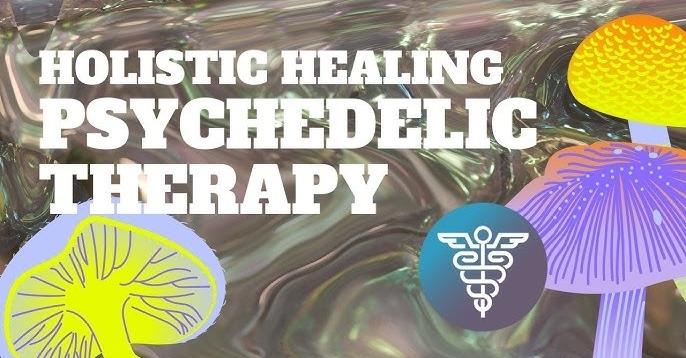Psychedelics have been utilized for quite a long time by different societies for otherworldly and therapeutic purposes. Today, there is a developing interest in the utilization of Psychedelics for upgrading self-improvement and self-revelation.
Late examinations have shown that hallucinogenics can have huge remedial advantages, especially in the treatment of wretchedness, tension, and enslavement. As we face an emotional wellness emergency, investigating all potential roads for recuperating and growth is significant.
A Brief History of Psychedelics
Psychedelics have been utilized by people for millennia, with proof of their utilization tracing all the way back to old civic establishments like the Mayans and Aztecs. These societies utilized substances like psilocybin mushrooms and peyote in strict services to actuate changed conditions of cognizance and associate with the heavenly.
During the twentieth hundred years, psychedelics acquired prominence in the Western world through figures like Timothy Leary and Aldous Huxley. Notwithstanding, their utilization was before long condemned because of worries about their likely risks and relationship with nonconformity developments. Lately, there has been a resurgence of interest in psychedelics for helpful purposes, prompting expanded examination and investigation of their likely advantages. Some clinics, such as psychedelic therapy boston, offer psilocybin-assisted therapy as a promising treatment for depression.
How Psychedelics Interact with the Brain
Psychedelics connect with the mind in a special manner, principally by restricting to serotonin receptors. This prompts a disturbance of typical cerebrum action and an expansion in correspondence between various districts of the mind.
One of the most fascinating impacts of psychedelics is the disintegration of self image limits, which can prompt significant encounters of solidarity and interconnectedness. This is remembered to happen because of the diminished action in the default mode organization, a bunch of mind districts that are engaged with self-referential reasoning and the support of our identity.
Psychedelics for Enhancing Self-Discovery
Psychedelics have been utilized for a really long time as a device for self-revelation. At the point when taken in the right setting and with goal, they can give significant bits of knowledge into one’s own mind and assist people with acquiring a more profound comprehension of themselves.
Research has shown that psychedelics can increment brain adaptability, permitting the cerebrum to shape new associations and examples of thought. This can prompt expanded imagination, receptiveness, and a more prominent feeling of sympathy and connectedness to other people. Nonetheless, it’s essential to take note of that these impacts are not ensured and can shift enormously relying upon individual elements and the particular substance being utilized.
Therapeutic Uses and Benefits
Psychedelics have shown extraordinary commitment in treating an assortment of emotional wellness conditions, including discouragement, uneasiness, and PTSD. Investigations have discovered that these substances can assist people with acquiring new viewpoints on their concerns, diminish side effects, and work on generally prosperity.
One of the critical advantages of psychedelics treatment is its capacity to work with profound close to home handling. By permitting people to get to troublesome feelings and recollections in a protected and upheld climate, hallucinogenics can assist with peopling work through injury and accomplish enduring recuperating.
Psychedelic Safety and Ethical Considerations
One of the main contemplations while working with psychedelics is wellbeing. While these substances can be staggeringly amazing assets for self-awareness and recuperating, they can likewise be risky on the off chance that not utilized as expected. It’s fundamental for work with a prepared proficient who can assist with directing you through the experience and guarantee that you’re involving the substance in a protected and capable manner.
Another significant thought is morals. The utilization of psychedelics brings up various moral issues, especially around issues of assent and access. It’s critical to consider cautiously about who ought to approach these substances, and under what conditions. Also, it’s vital to think about the likely dangers and advantages of psychedelics use, and to gauge these against other accessible treatment choices.
Frequently Asked Questions
1. Are psychedelics safe for everyone?
No, some people should not take psychedelics, including those with certain mental and physical health conditions. Working with trained guides can help reduce risks. Start with low doses and proceed cautiously.
2. How can I optimize my psychedelic experience for self-growth?
Take time to prepare your set and setting. Articulate your intentions. Have an experienced guide accompany you. Schedule integration work afterward to apply insights. Stay safe.
3. Can micro dosing psychedelics really make you more creative or productive?
Some evidence suggests small doses may provide cognitive benefits, but more research is needed. Effects likely vary based on the individual and dosage. Proceed thoughtfully and monitor how you feel.
The Future of Psychedelic-Assisted Therapies
Taking everything into account, the eventual fate of psychedelic helped treatments is splendid. As more examination is directed and shame diminishes, we will probably see an expansion in the utilization of psychedelic for remedial purposes. The expected advantages for people battling with psychological well-being issues are colossal, and the developing interest in this field is a demonstration of the requirement for elective medicines.
Be that as it may, moving toward this subject with mindfulness and responsibility is significant. While hallucinogenics can be useful assets for self-awareness and recuperating, they ought to just be involved under the direction of prepared experts in a protected and controlled climate. Moral contemplations should likewise be considered, especially with respect to social allocation and the double-dealing of native information.

